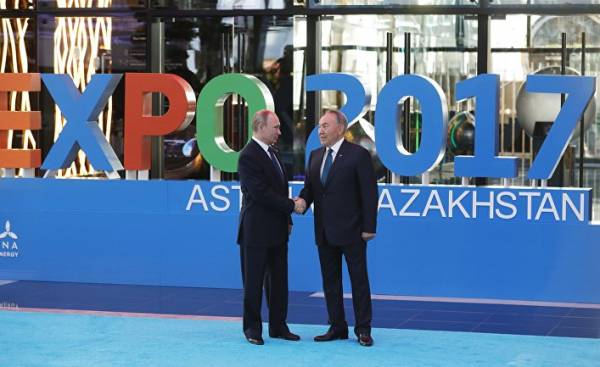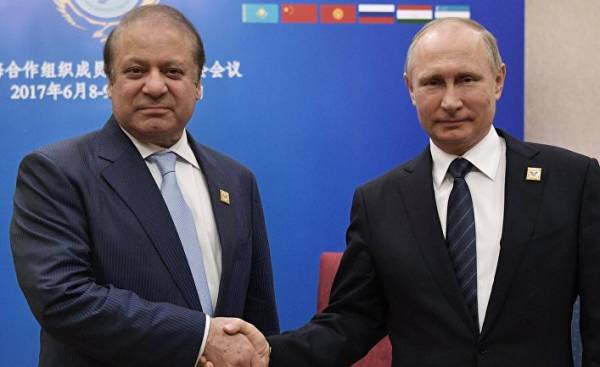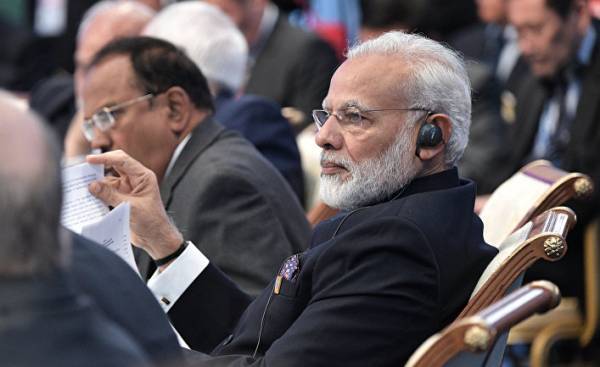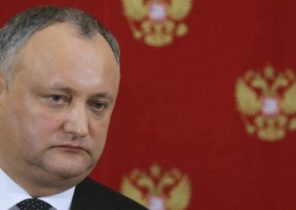
With the accession of India and Pakistan, the size of the economy of the SCO by the end of 2015 rose to the level of 15 trillion dollars.
The total GDP of the Shanghai cooperation organization (SCO) with the accession of Pakistan and India exceeded $ 15 trillion and reached about 20% of world GDP, which is 74 trillion dollars.
Prior to the accession of these two countries to SCO the size of the economy of the organization at the end of 2015 amounted to 12.7 trillion dollars. The potential of economic cooperation of this organization was on the agenda of the SCO summit, recently held in the capital of Kazakhstan, Astana.
The Association, founded in 1996 by the leaders of China, Russia, Kazakhstan, Kyrgyzstan and Tajikistan called the Shanghai five, in 2001 after Uzbekistan joined, changed its name to “Shanghai cooperation organization”. SCO, which over the past since then time has raised its influence on the world economy, with the approval of the full membership of Pakistan and India at the summit in Astana June 9, gained even more strength.
The organization, which now includes eight member countries aimed at strengthening mutual cooperation and trust between member States in political, trade, economic, scientific, cultural, educational and other spheres.
“Serious potential in the sphere of economic cooperation”
Lecturer in the Department of international relations middle East technical University (ODTÜ), Professor oktay Tanrisever (Oktay Tanrısever) answered questions related to the economic potential of the SCO.
The structure of SCO is changing and developing, noted Tanrisever. The organization was primarily established to resolve border issues, but lately its influence is growing in the economic sphere.
Tanrisever noted that while the SCO is far from the project of integration similar to the European Union (EU): “the Shanghai cooperation organization includes a very different country. They have different interests, economic structures. While the SCO countries are far from economic integration, but they have serious potential for cooperation in this sphere”.
 © RIA Novosti, Alexei Nikolsky | go to Photobacterium of the Russian Federation Vladimir Putin and Prime Minister of Pakistan Nawaz Sharif at the SCO summit in Astana. 9 Jun 2017
© RIA Novosti, Alexei Nikolsky | go to Photobacterium of the Russian Federation Vladimir Putin and Prime Minister of Pakistan Nawaz Sharif at the SCO summit in Astana. 9 Jun 2017
Touching upon the themes of Turkey’s relations with the SCO, Tanrisever said: “Turkey is not a country that considers the prospect of full membership in the SCO, it more acts as a dialogue partner. Turkey retains the intention to become a full member of the EU. Look our country in the SCO is formed in the following framework: “Not to stand aside from regional entities, increase its influence in the global economy, to maintain relations with them, albeit at a low level, to monitor developments and to enjoy the economic advantages which it gives””.
Now, with the accession of Pakistan and India, the SCO countries account for almost half of the world’s population, drew the attention of Tanrisever. One of the topics about which much was said at the summit in Astana, was a project of China’s “one belt, one road”, said Tanrisever, and member countries support the project.
“Pakistan and India will add to the prestige of the organization”
Lecturer in the Department of political science Stanford University Phillip: (Phillip Lipscy) noted that the SCO was created with the aim to counterbalance these Western international organizations such as NATO.
Lipsi drew attention to the fact that key members of the organization are skeptical about giving up national sovereignty in favor of international associations, which limits the potential of the SCO.
 © RIA Novosti, Alexei Nikolsky | go to photobacteria Prime Minister of India Narendra modi at the meeting of the Council of heads of member States of the SCO. 9 Jun 2017
© RIA Novosti, Alexei Nikolsky | go to photobacteria Prime Minister of India Narendra modi at the meeting of the Council of heads of member States of the SCO. 9 Jun 2017
The member States have many overlapping interests, especially in the field of economic development, infrastructure, the fight against terrorism. The expert said: “the SCO could facilitate dialogue and cooperation among member countries. The organization puts a lot of effort to achieve substantial cooperation.”
Lipsi, commenting on the accession of India and Pakistan to the SCO as full members, expressed the view that it will add prestige to the organization, however, will complicate reaching consensus between countries with different interests and also the road to success in the development of significant cooperation.






